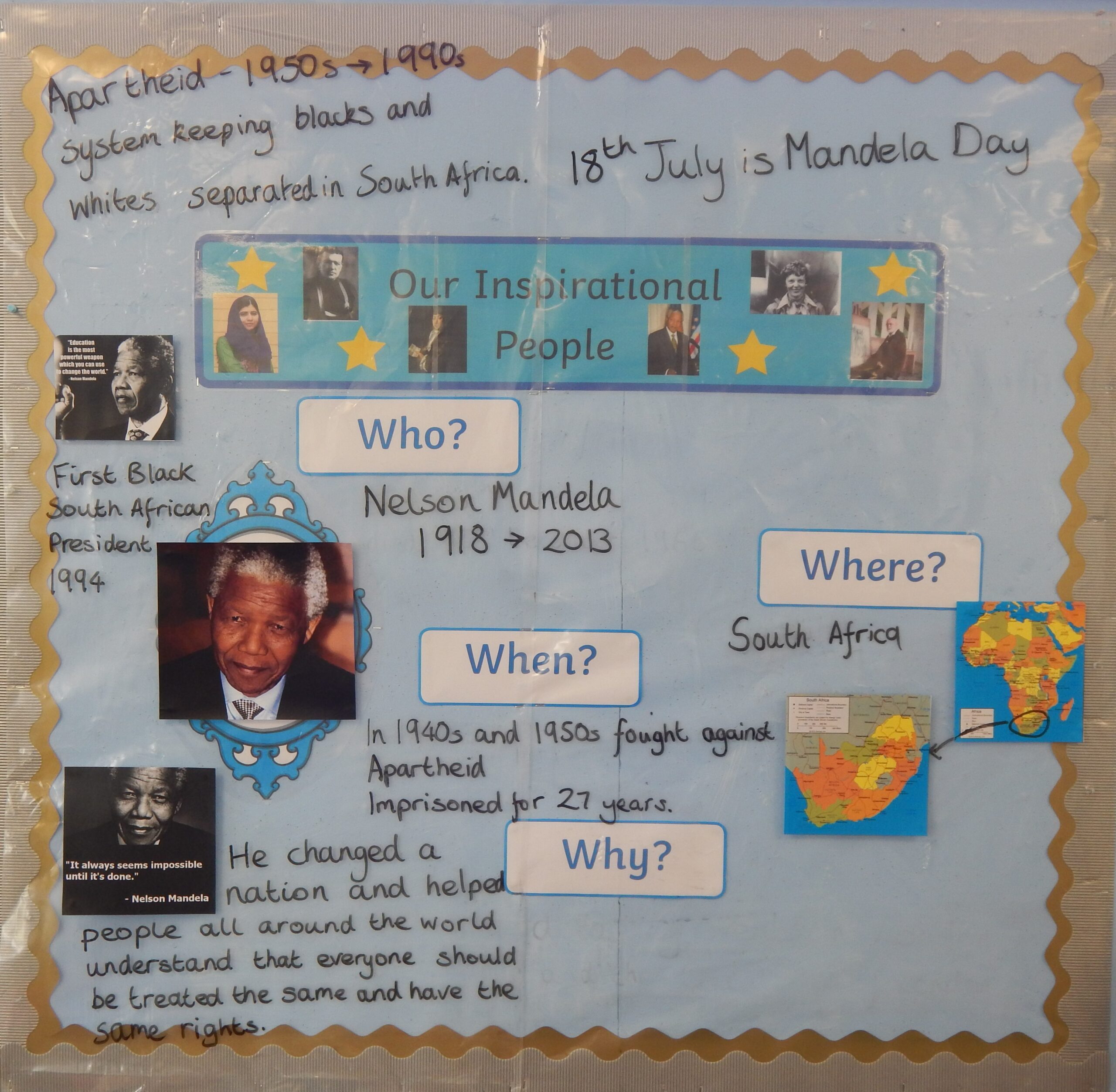PSHE

Inspirational people who made a difference: Mahatma Ghanda, Nelson Mandela, Walt Disney and Karl Max
Intent
At Weeth School we believe in the explicit and dedicated teaching of PSHE (Personal, Social, Health and Economics) to equip our children with the tools needed to navigate our ever-changing world. More so than ever, we understand the need for children to consider their wellbeing as well as develop their social skills. The recent, challenging times has tested and restricted the opportunities to practise our social skills and coupled with the increase of people suffering with ill mental health, we feel it is imperative to give this valuable subject the coverage and high profile within our curriculum that it is deserves and needs.
We have a strong emphasis on social and emotional learning which links directly to our 3 I’s (Inspire, Influence and Impact) and these lessons give our young people the skills and knowledge they need to flourish in school and beyond.
Broadly, our units can be classified into the following categories: health and wellbeing, living in the wider world, RSE (Relationships and Sex Education) and drugs awareness and relationships. Within these, children learn to recognise and address a range of emotions and feelings as well as gaining life skills that will enable them to become resilient, life-long learners and present themselves as all round good citizens.
Our PSHE offer complements the fundamental British Values. The learning objectives help to develop a willingness in children to engage in important moral questions – through reasoned and wide-ranging argument – to encourage genuine commitment to fundamental democratic values.
The skills and knowledge learned in PSHE lessons are transferable across the curriculum and we want our children to understand how to apply key skills and strategies in a range of different contexts.
We participate in a variety of focus days or weeks such as, Anti-Bullying Week, Mental Health Week, Road Safety Week and many more which enables us to focus on specific areas. These are celebrated in different ways e.g. Odd Sock Day, wearing yellow etc.
Implementation
Our delivery of PSHE follows the National Curriculum and we use the Lifewise scheme of learning to implement this.
Discreet hourly lessons are taught in each class and skills and strategies are referred to within other lessons or situations.
Learning objectives in the Lifewise topic lesson plans for Sex, Drugs and FGM education reference the relevant year group learning objectives in the Science National Curriculum, where applicable, and highlight additional content included in the Lifewise Scheme.
In KS1, the learning objectives for Lifewise topics focus on areas within the pupil’s own personal experience e.g.: their family life, sense of safety and immediate relationships such as friends and family.
In KS2, the learning objectives for Lifewise topics build on the KS1 learning. They further develop pupils’ understanding of personal experiences, helping them to apply this learning to situations in every-day life, the wider world and their future health and well-being.
Prominent displays are in each classroom reflecting the current unit being taught. These contain strategies to overcome barriers (academic, social and emotional) linking directly to social and emotional learning.
PSHE Overview
| Autumn 1 | Autumn 2 | Spring 1 | Spring 2 | Summer 1 | Summer 2 | |
| FS2 | Road safety
Keeping our hands to oursleves Sleep Water saftey |
Who helps me at home and at school?
Who helps me stay safe and healthy? Fire safety Gentle hands and hearts
|
Being curious
Making mistakes Managing feelings |
Sharing
Planting our food Plants we can eat |
Animals
Cities, town, land and sea The great outdoors Sounds music and noise
|
Marching to the beat of your own drum.
Taking good care of yourself Follow my lead Technology |
| Year 1 | Trust
Road Safety Managing Anger |
Emergency Services
Being Happy First Aid/CPR |
Being Mindful
Communication A Problem Shared is a Problem Halved |
Braving the Weather
Respecting Others Safety Symbols |
Food and What Not to Eat
Water Safety Hygiene and Me |
Getting Your Sleep
My Body Belongs to Me (RHE/RSE) Signalling &Sign Language |
| Year 2 | Forest Survival
Happiness It’s Okay Not to be Okay |
Fire Safety
Dealing with Loss Personal Goal Setting |
The Art of Failure
Fight or Flight Relaxation |
Protecting our Planet
Feeling Sad Medicines and Drugs |
Desert Island
Navigation Environment |
Wildlife
My Body is Growing (RHE/RSE) |
| Year 3 | Relationships with Others
Helping Others to Get Help Growth Mindset Mindfulness |
Self-image
Anxiety Managing Anger Stress |
Problem Solving &Time Management
Self-worth Personal Hygiene Culture & Liberty |
Vaccinations & Disease
Sun Safety Freedom to Choose |
Trusting Others
Exercise Democracy & Law |
My Body, Your Body (RHE/RSE)
Screen Time Staying Safe Online |
| Year 4 | Respect
Problem Solving & Resourcefulness Leadership |
Impact of Bullying & Discrimination
Relaxing to Re-Charge |
A Balanced Diet
Healthy Eating The Importance of Physical Activity |
Where Does My Food Come From?
Sleep Screen Time |
Family Relationships
Government & Rules Freedom in Beliefs |
It’s Okay Not to be Okay
The Art of Failure Keeping My Body Safe (RSE) |
| Year 5 | Learning
Resilience Teamwork Laws & Parliament |
Dealing with Adversity
Responsibility & Inspiration Body Language & Communication Being Responsible |
Respecting Others – Boundaries & Beliefs
The Human Body The NHS |
You Get Out What You Put into Life
Communicating Effectively The Digital World |
Supporting the Community
Freedom of Speech and Movement Saving Money Borrowing Money |
Junk food
Nutritional Values My Body Changes (RSE) Keeping My Body The Same |
| Year 6 | Tax
Entrepreneurship Banks First Aid |
Organisation of Life
Pensions Power of Negotiation |
From Learning to Working
How to Write a CV Self-perception |
The Government
Law Lawmakers & Activists |
Drugs, Alcohol & Smoking
Rights & Radicalisation Transition |
My Amazing Body (RSE)
Feeling Anxious Managing Anger |
